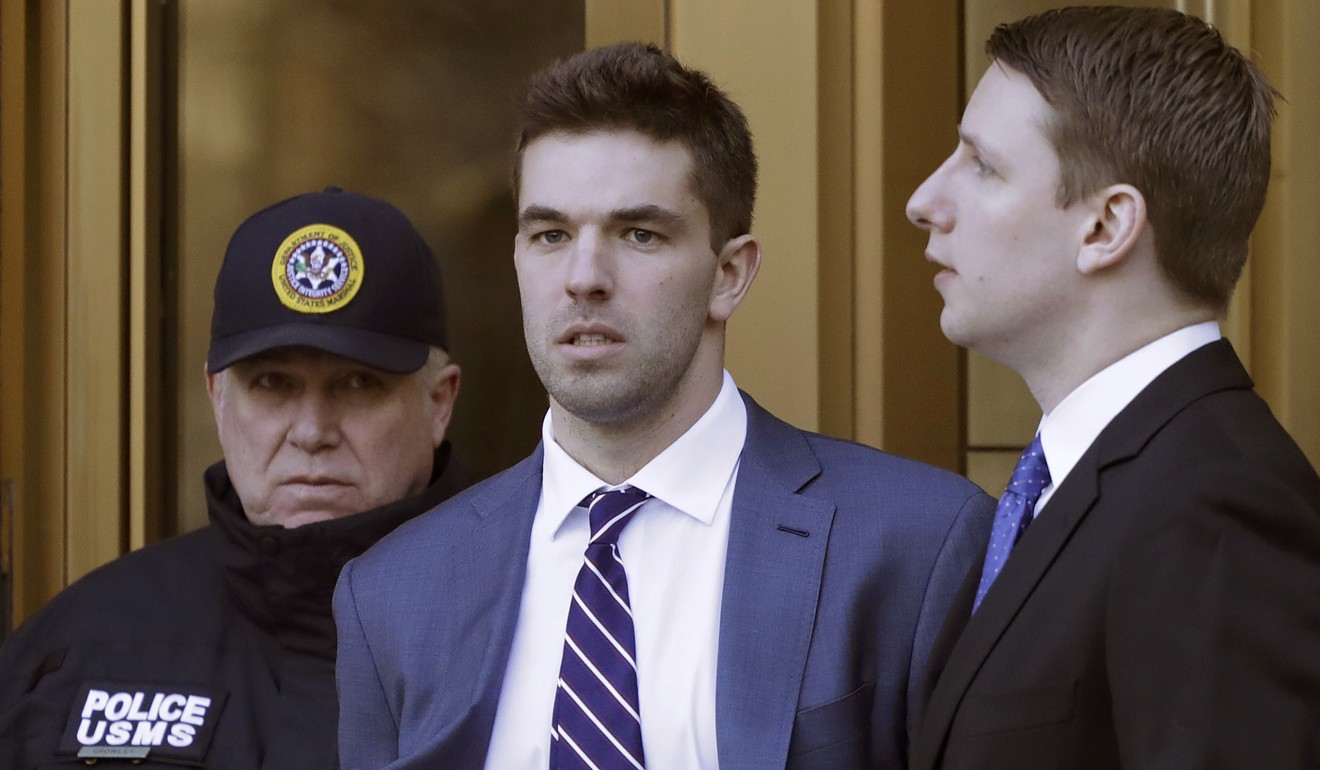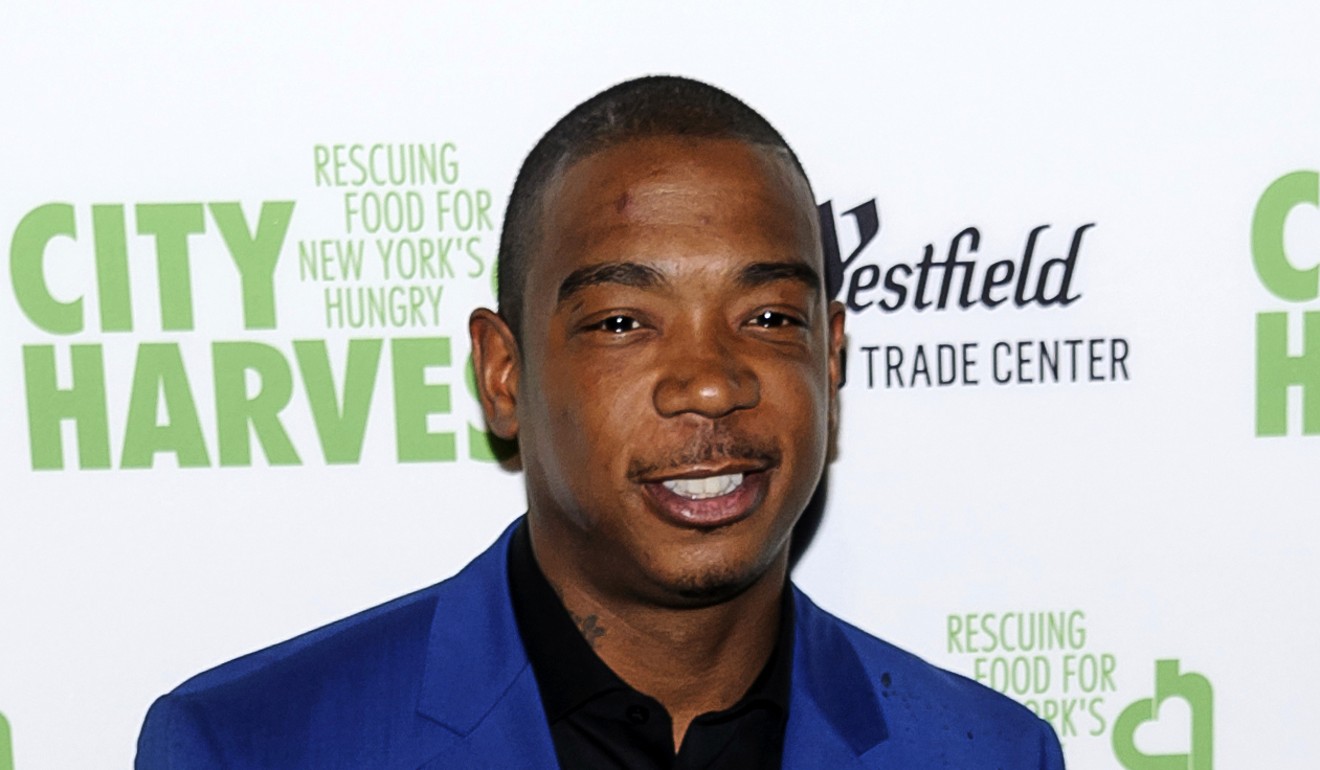
Netflix’s Fyre Festival documentary exposes why high-profile Bahamas event went up in flames
- Fyre: The Greatest Party That Never Happened reveals a strange and sad story behind the failed Fyre Festival in the Bahamas
- In place of an opulent beach party, attendees at the 2017 event were greeted with a barren, unfinished site and leftover hurricane tents
“Just take it away and let me start a new beginning … It really pains me when I have to talk about it.” MaryAnn Rolle sits outside her restaurant on Great Exuma in the Bahamas, holding back the tears as she looks towards the camera.
Like many other Bahamians, she believed that a new luxury music festival organised by rapper Ja Rule and serial entrepreneur Billy McFarland would bring money and attention to the island. Instead, Fyre – which had been promoted by top models including Bella Hadid and Kendall Jenner, and promised acts including Migos, Drake and Major Lazer – became one of the most talked-about flops of the decade.
Promoter of failed Fyre Festival is sentenced to six years in prison
In place of an opulent beach party, attendees at the April 2017 event were greeted with a barren, unfinished site, leftover hurricane tents and conditions that lawyers would later describe as “closer to The Hunger Games … than Coachella”, with ticket holders stranded on the island without food or water.
It is this reality – away from the memes, lols and claims that the event was “Darwinism at its finest” – that’s explored in a new Netflix documentary, Fyre: The Greatest Party That Never Happened, revealing a stranger and sadder, story.
For director Chris Smith, the unanswered questions around Fyre were a source of intrigue. Smith was finishing work on Jim Carrey and Andy Kaufman documentary The Great Beyond when he remembered having heard about the festival months before.
“It felt like it had been a sort of footnote that people had forgot about,” he says. “It felt very one-dimensional, like no one really had much information about what had actually happened. It was a punchline on talk shows.”

He quickly worked out that this was more than just a story of social media Schadenfreude when a preliminary meeting with festival consultant Marc Weinstein ran on for three-and-a-half hours, and so set about investigating the story alongside the likes of Vice and Jerry Media, a company hired to work on social media for the festival.
The resulting documentary works both as horror film and a striking study in human psychology. “I think that the coverage to date portrayed the situation in a way that you kind of thought everyone associated with Fyre was bad or unsavoury,” says Smith.
“And as we got into it, and met the people that actually were doing the work, from the contractors to the Fyre media team, I was surprised at how many earnest, thoughtful, caring, hardworking people were brought into this project, and really did give everything they had, even though it was an impossible task.”
Indeed, a common misconception about the festival – fuelled by Twitter jokes and clickbait – was that it had been a long con, with the organisers never intending to actually put on an event. Instead, we learn that Fyre was the work of an extravagant grifter [McFarland] in way over his head, whose team could never have accomplished his original vision.
As we see throughout the film, alternately desperate and inexperienced staff stepped in to complete a number of inconceivable tasks. Among them: finding a new location for the festival, securing high-end accommodation for guests on a packed island and even agreeing to engage in a sex act with a customs official to secure a vital shipment of drinking water.
“Billy called and said: ‘You have to take one big thing for the team … will you suck dick to fix this water problem?’,” recalls event producer Andy King in the documentary.
New Bahamas music festival promised this. Instead, people got this …
For Smith, getting people to open up about their involvement was “very challenging, just because it was something that obviously a lot of people wanted to forget”. However, he says it ultimately offered them a sense of catharsis, away from the negativity and stigma that had built up around the event.
As well as interviews with those who worked on the festival, the film also introduces us to some attendees to get their side of the story. They include Seth Crossno, a 34-year-old media entrepreneur who attended the festival under his satirical blogging alias William Needham Finley IV.
Crossno’s Twitter posts were among the first to be picked up by media outlets, and he has been retelling the story of his trip to Great Exuma ever since, with plans to launch a “Dumpster Fyre” podcast.
While he wasn’t the “average loser” McFarland and Ja Rule glibly described as their target market for the festival, Crossno wasn’t a rich kid, either. Rather, he was a low-level influencer looking for content.
“I thought it would be funny to my followers, which was three or four thousand followers on Instagram and Twitter at the time,” he says from his home in Raleigh, North Carolina. “And they’d be like: ‘Wait, he’s really doing this?’ We didn’t pay US$12,000 to go, it wasn’t some crazy thing. I mean, I heard people there saying: ‘I got my ticket for US$500 on Groupon’.”
After enduring “dangerous” conditions at Fyre, Crossno and a friend were awarded US$5 million as part of a class-action lawsuit against McFarland, although he now adds that this remains a mere IOU to the founder, who fraudulently secured US$26m from investors.

As well as contrasting the expectations and realities of Fyre, we also see how crucial the promo video with the likes of Jenner and Hadid was to the festival’s buzz and initial mythos. The turquoise sea and the models’ bronzed bodies take on an eerie quality when we’re reminded that they were part of a reality that never quite existed.
“It wasn’t just like: ‘Oh you’re an idiot for falling for that’,” adds Crossno. “You can really see that a lot of work went into creating this illusion.”
From BTS to Lil Tay: five of the biggest music stories from 2018
It’s a liminal space that Fyre exploited but one that, really, is a far bigger problem than the festival itself, constantly shifting as the ethics of online culture evolve. Towards the end of the film, Weinstein – who was tasked with much of the logistics of the festival – questions his own complicity, having shared idyllic photos of the island on Instagram while operations were faltering.

The fascination with creating a saleable concept makes for a film-within-a-film feel, with much of the footage derived from “behind-the-scenes” videos shot by the Fyre founders. As Brett Kincaid – who worked with McFarland on the original promo shoots and serves as an executive producer on the documentary – explains in the film, McFarland’s philosophy was to “capture everything”.
This makes for cringe-making viewing in places, with clips of McFarland and Ja Rule toasting to “living like movie stars, partying like rock stars and f***ing like porn stars” juxtaposed with bumpy, Blair Witch-type clips filmed by attendees such as Crossno.
The moment when Ja Rule describes McFarland as his “partner in crime” now offers a new irony, while their lavish behaviour – hanging out on yachts, flying drones, ordering models to join them in the sea at night – seems to verge on parody.
The documentary does explore a further scam McFarland masterminded following the festival and then his eventual imprisonment, but it allows its audience to make their own conclusions about the figure at its centre. Overall, though, the picture we get is one of sort of a naive, shameless Jay Gatsby for the Instagram generation.
“[McFarland] definitely acted in ways that were not above board throughout,” says Smith. “But the question is what the intent was … I think [it] was to live this lifestyle and be this person that was at the centre of everything. Maybe [he is] a product of our times.”

